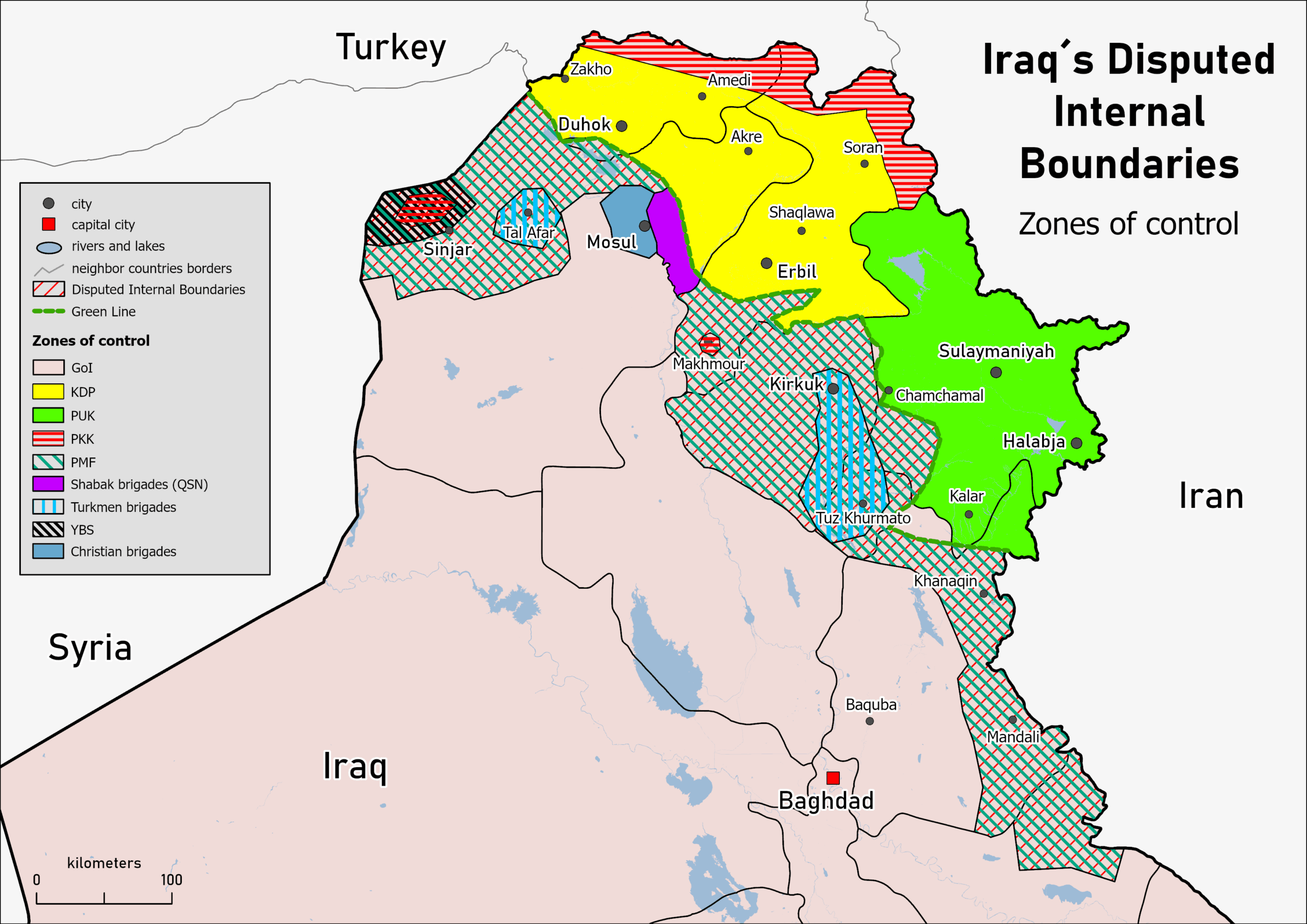How Are Turkey and Iran Competing in Iraq’s Disputed Territories? A New Scholarly Article by PCMR for Regional & Federal Studies
Date of publication: July 1, 2025

A new academic article by Filip Sommer, Director of the Prague Center for Middle East Relations (PCMR) at CEVRO University, titled “Iran’s and Turkey’s footprint within Iraq’s disputed internal boundaries. Trans-regional governance of northern Diyala and Kirkuk after October 2017”, explores the processes of trans-regional governance through which two major Middle Eastern “powers” exert control over a range of political, economic, and security decisions tied to local and regional administration in Iraq’s disputed territories. Since these territories are contested between the Iraqi central government and the Kurdistan Regional Government, power vacuums arise, which Turkey and Iran seek to fill through proxy actors.
Published in the academic journal Regional & Federal Studies, the article examines a specific governance phenomenon in Iraq’s disputed areas and introduces a new concept of trans-regional governance. This concept applies to areas: (1) with limited statehood, where institutional weakness allows non-state armed actors to fill power vacuums, (2) where the local economy is import-dependent, (3) that are strategically close to external actors, enabling sustained access and influence, and (4) that are populated by ethno-religious minorities who may seek affiliation or protection from nearby kin-states based on shared identity.

